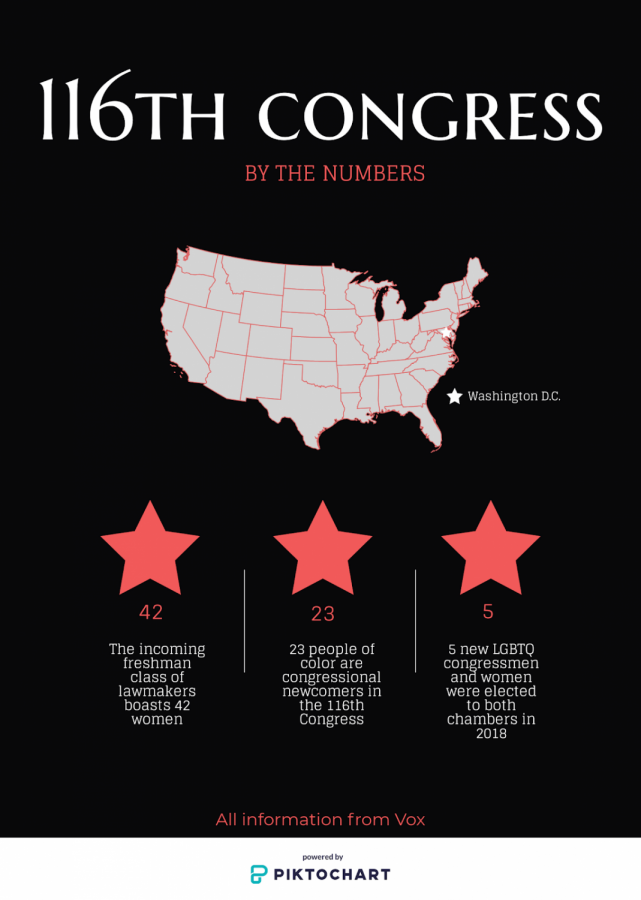Diverse Congress indicates necessary change
Representation is implied in the House of Representatives, though the title now bears more accuracy. According to MSNBC, the 116th Congress is the most diverse in the United State’s history––a feat which is long overdue. Diversity on the congressional level benefits both the political system and the people.
Our newly diverse Congress is politically advantageous. Increased heterogeneity means that more viewpoints will be represented on a political level. Founding father James Madison warned against an “overbearing majority”, and plurality effectively safeguards the country against any one voice from becoming too powerful.
Furthermore, the American people themselves benefit from this diversity. The wide range of American ideologies simply cannot be reflected in a single demographic––namely, white men.. As such, a variety of legislators are necessary to truly represent the general public. This includes different ethnicities, sexual orientations and genders.
For example, men will naturally have different political priorities than women. According to Jean Sinzdak, associate director of the Center for American Women and Politics, women in elected office tend to represent women’s interests as well as those of marginalized groups.
Thanks to the varied viewpoints now represented in Congress, a plethora of political opinions now have the opportunity for congressional acknowledgement. Deb Haaland and Sharice Davids are the first Native American women in Congress, and their respective elections allow Native American perspectives to be represented in the legislative process. Increased diversity means that the constituents represented will see their opinions reflected.
According to Forbes, diversity in perspectives leads to better decision making. For example, gender-diverse teams make better decisions 15 percent more often than all-male teams. A Congress with greater representation will make comparatively superior decisions than that of a homogenous one. More women, more people of color, and more LGBTQ people makes for a more productive, bipartisan, and responsive legislature. This is crucial given the nature of the legislative branch.
Diversity is not just politically preferable––it is inspirational and rousing to those who finally see themselves represented. It’s important to see historically marginalized groups aspiring to––and achieving––consequential positions in our government.
According to Psychology Today, representation increases self-esteem. Little girls may look to Alexandria Ocasio-Cortez, the youngest woman ever elected to Congress. LGBTQ youth can admire Senator Kyrsten Sinema, the first openly bisexual woman in Congress. Muslims may see themselves in Ilhan Omar, the first woman of her faith in Congress. The list goes on.
Diversity is an imperative facet to our democracy, and Congress is all the better for it. Given the tumult of the current political climate, it’s important to recognize the wide range of perspective that form our populace––representation in the government is the first step.


















































